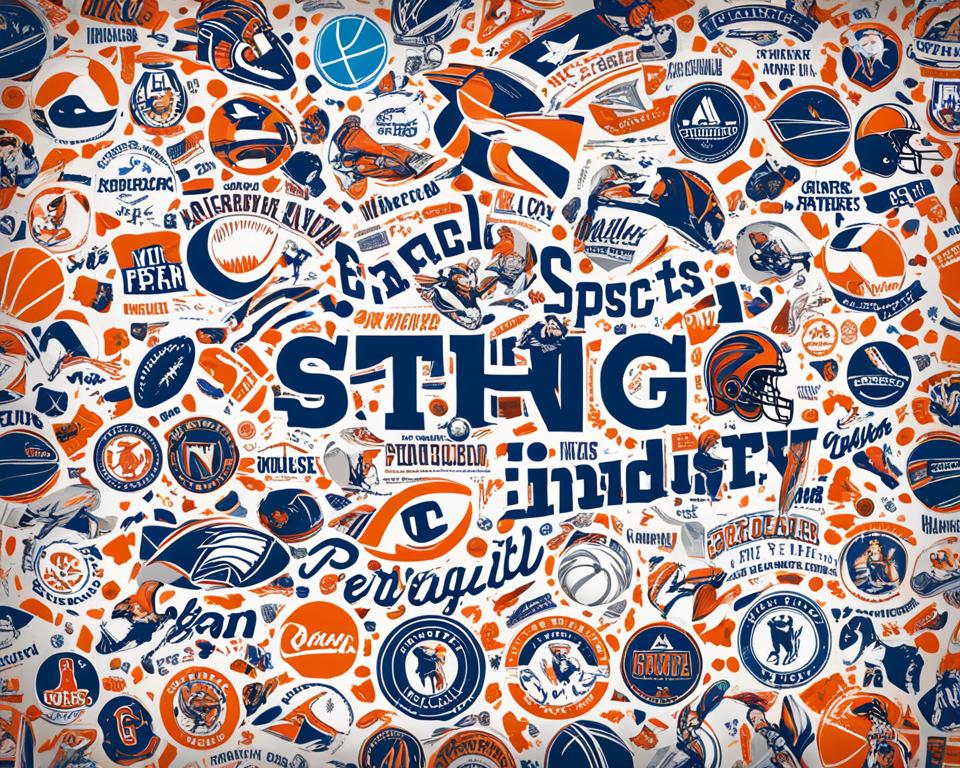The vibrant tapestry of the sports industry is continually woven with innovative threads, reflecting a dynamic merger of technology, social consciousness, and environmental considerations. The current sports industry trends are indicative not only of a sector in flux but of a revolution that’s redefining the very essence of competition and entertainment.
Rooted in comprehensive market research and forecast analysis from leading authorities such as Statista, Forbes, and Deloitte, a deeper understanding emerges of the sports market evolution. These insights reveal an undeniably potent growth trajectory, as emerging technologies and ideologies propel the changing sports landscape towards uncharted territories.
As the global sphere takes note, the economic ramifications are palpable, with the cultural imprint of sports expanding in step. Whether it is the rise of e-sports or the stride towards sustainability, each trend underscores the core truth: the sports industry is more than just a game; it’s a reflection of our collective aspirations and societal progress.
At this juncture, it’s not only about the scoreboard or the flash of medals; it’s about the stories cocooned within each play, the strategy powered by analytics, and the technology that’s steadily erasing borders between fans and the sports they adore. With this in mind, we dive headfirst into an exploration of these potent influences shaping the sports industry today and how they will dictate the games of tomorrow.
Technological Innovations Reshaping Sports
The realm of sports is undergoing a significant transformation, thanks to the advent of cutting-edge technologies. From optimizing athlete performance through sophisticated wearable devices to enhancing fan engagement with immersive virtual reality experiences, technological advancements are setting new benchmarks in the sports industry.
Wearable Tech Advancements for Athlete Performance
Wearable devices are at the forefront of sports technology, empowering athletes to perform at their peak. Brands like Fitbit and Garmin are leveraging these devices to monitor vital health metrics, enabling personalized training routines and preventing injuries. This evolution in wearable tech not only boosts individual athlete performance but also provides team coaches with invaluable data for strategic decision making.
Virtual Reality (VR) Training Tools and Fan Experiences
Virtual reality in sports is transforming the way athletes train and fans experience games. Training tools such as STRIVR allow athletes to immerse themselves in realistic environments, simulating various game scenarios without the physical risks. Moreover, leagues like the NBA are using VR to offer fans unique viewing experiences, bringing them closer to the action than ever before.
AI and Data Analytics for Talent Scouting and In-Game Strategies
The integration of AI in sports and advanced sports data analytics is revolutionizing how talents are scouted and games are strategized. Platforms like STATS and Synergy Sports Technology are pivotal in analyzing vast data sets, uncovering insights that enhance player selections and game tactics. This not only streamlines the scouting process but also enriches the strategies employed during crucial game moments.
Sustainability and Social Responsibility Initiatives
The sphere of sports is embracing a new paradigm, focusing not just on the thrill of the game, but also on the profound societal and environmental implications it carries. The shift towards sustainable sports is becoming increasingly synonymous with the industry’s identity, as organizations strive to reduce the environmental impact of sports. Efforts range from constructing green stadiums to adopting comprehensive socially responsible practices that are transforming the way fans, athletes, and stakeholders perceive the games we love.
Eco-friendly Stadiums and Sustainable Event Management
Advancements in eco-conscious designs are evident with venues like MetLife Stadium leading the charge in sustainability. These green stadiums are not just marvels of architecture but are also bastions of energy efficiency and waste management. LEED-certified venues showcase the potential for large-scale sporting events to minimize carbon footprints, conserve resources, and offer models for sustainable event management. Initiatives championed by the Green Sports Alliance further emphasize this commitment, demonstrating to the world that the sports industry is serious about integrating environmental stewardship into its core operations.
Athlete Activism and Corporate Social Responsibility (CSR)
The passion of competition is matched by the passion for advocacy, as seen with prominent figures like LeBron James and Megan Rapinoe. Their athlete activism extends beyond the arena, catalyzing social change and inspiring sports CSR across leagues and teams. Their actions and voices resonate with fans and peers, instilling a sense of responsibility that transcends sport. This has paved the way for sports organizations to reflect these values in their CSR policies, fostering a culture that honors both the competitive spirit and the collective well-being of society.
Indeed, the intersection of sports with social and environmental concerns presents a powerful opportunity for the industry to lead by example. The reputation and financial performance of sports organizations are increasingly tied to their sustainability and CSR endeavors. As they continue to be scrutinized through CSR reports and environmental impact assessments, it’s clear that the investments in these domains are more than just ethical choices—they’re strategic imperatives that resonate with fans, communities, and the planet.
